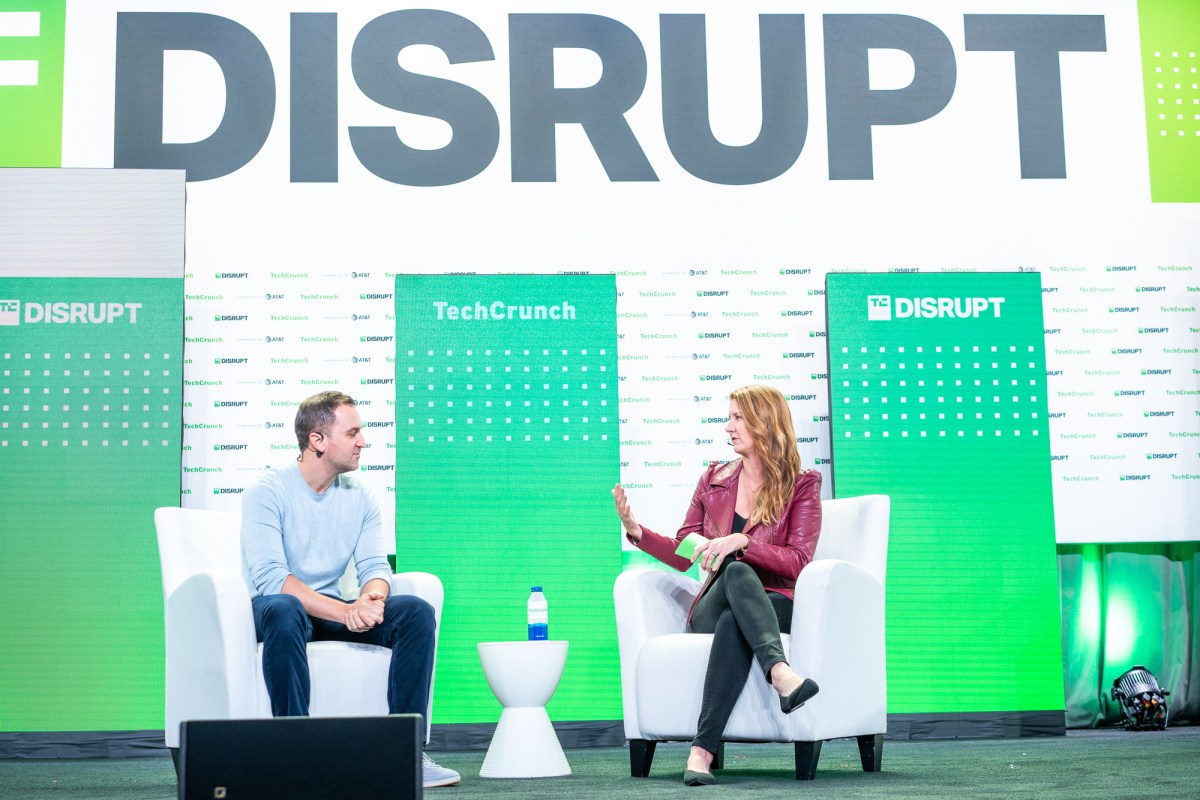
Arrival restructures (again), Bird downsizes and spins out from Disrupt • TechCrunch
The Station is a weekly newsletter dedicated to all things transport. Sign up here – just click on The Station – to get the full newsletter delivered to your inbox every weekend. This is an abbreviated version of The Station’s email newsletter to subscribers. Want all the offers, news summaries and comments? Subscribe to for free.
Welcome to Station, your central hub for all past, present and future ways to get people and parcels from A to B.
Wow, what a week here at TechCrunch! Our annual Tech Hall (I can’t even call it a conference) was a blast. Our show floor was packed, the roundtables were oversubscribed, and two stages showcased some of the most interesting people in tech.
The climax of the event, as always, was the announcement of the winner of the Startup Battlefield.
This process started with Battlefield 200 startup, hand-picked companies (from thousands of applications) that have been vetted and selected to exhibit on the show floor. from here 20 startups were selected compete in Startup Battlefield, where founders battle it out in front of judges for a chance to win $100,000 and the coveted Battlefield Cup. We fanned him to five finalists: Advanced Ionics, AppMap, Entropic materials, Minerva Lithium and Swap Robotics. The judges who judged the final five were Mar Hershenson (Pear VC), Yahoo CEO Jim Lanzon, Eileen Lee (Cowboy Ventures), TechCrunch Editor-in-Chief Matthew Panzarino, David Tisch (BoxGroup) and Richard Wong (Acceleration).
In the end the crown went to Minerva of Lytia, a company co-founded by Shiba Dawood and Hemali Ratnayake that wants to change the way lithium is mined.
Minerva has come up with a coordinated polymer structure that extracts important materials from salt water in just three days and without damaging the environment. Minerva can not only extract lithium, which it can sell to battery makers at battery prices, it can also capture other minerals and possibly treat residual drinking water.
Congratulations Minerva Lithium!
Oh, before I forget: we opened advance registration for 2-for-1 tickets so register and we’ll let you know when you can secure your place at next year’s event.
You can always write to me at the address kirsten.korosec@techcrunch.com to share thoughts, criticism, opinions or advice. You can also send a direct message to @kirstenkorosec
Rivian and Lyft at Disrupt
RJ Scaringe, CEO of Rivian, and TechCrunch’s Kirsten Karosek at TechCrunch Disrupt in San Francisco on October 19, 2022. Author of the image: Haje Kamps / TechCrunch
During Disrupt, I interviewed Rivian founder and CEO R.J. Scaringo and Lyft co-founder and president John Zimmer.
Both interviews provided interesting information about the problems of founding and developing the company. There was even a little news. Here are some highlights from both.
Lift, John Zimmer
About past challenges:
• It wasn’t about Covid, but the sustained and early fight against Uber, which Zimmer says has been the toughest challenge the company has faced to date.
On autonomous vehicles:
“I think it’s too early to choose one winner, so today it’s about having several partners. In ten years? It’s too hard to predict.”
About the Tesla FSD and whether Lyft should order drivers not to use it when transporting riders:
“At the moment we don’t have a policy. You know, we think the regulatory bodies are the best when it comes to that level of safety.”
At the suggestion of the Biden administration:
“The recent proposal from the Biden administration that you’re talking about basically just takes things back to the way they were under the Obama administration, where all of our drivers were independent contractors. As a rule, we are governed at the state level. The federal government is important and relevant to all industries, but it’s really interpreted at the state level, which I would argue we’ve made a lot of progress in the last few years, one example being California.”
Rivian, RJ Scaringe
On the front of future products:
• More than half of Rivian’s 15,000 employees are working on future product lines, including the R2 platform, which will focus on smaller, cheaper cars.
• Yes, there will be a 400-mile “Max Package”. Scaringe did not provide a timeline.
• Micromobility, specifically the e-bike, will be part of the lineup
On recall:
• A “substantial majority” of over 12,000 vehicles which were recalled earlier this month.
• “It was very powerful for us to react so quickly, and I think what we saw from customers — of course there is frustration in something like this — but we tried to do the job as well as possible. We were real about it. We didn’t do that, we didn’t embellish it. We said we would go fix it. And that’s why it was very positive.”
On the supply chain:
• Think the semiconductor chip shortage was a bad thing? Scarringe said the shortage is “an appetizer to the extent we’re likely to see in the battery supply chain for the next 15 years.” Govt. (this is my reaction)
• “The lithium-ion battery supply chain as we know it, whether you’re looking at lithium hydroxide or lithium carbonate, has been largely built around consumer electronics, so it’s very small. It’s not a big supply chain. And so it should grow 20 times or on the order of 20 times over the next 10-15 years. And so the level of investment required for construction is staggering. And what’s more, I think the level of concentration of risk, given that it wasn’t built in the United States, is a real thing.”
micro mobbin
The big micromobbin news this week fell into the dark category. I’m talking about A bird and his plans exit from several markets worldwide, including Germany, Sweden, Norway and “several dozen additional, mostly small and medium-sized markets” in the US, Europe and the Middle East.
Deliver partnered with Volt to test use e-bikes for food delivery in Great Britain.
You’re reading an abbreviated version of micromobbin’. Subscribe to for free per newsletter and you will get much more.
Deal of the week

TechCrunch Disrupt kept me pretty busy, but a few deals caught my attention. One news item that rose to the top of the heap was Mobileye setting the terms of its IPO. The company, which plans to trade on the Nasdaq under the ticker MBLY, plans to offer 41 million shares at $19 a share, the estimated midpoint
Bain Capital and Abu Dhabi Investment Authority completed their acquisition MerchantsFleet, a fleet management company based in New Hampshire.
Want more suggestions? This week their entire list was in the subscription version. Subscribe to for free here.
Notable news and other curiosities
Autonomous vehicles
During Disrupt, I took a short and memorable ride in one of Cruise’s self-driving cars. The trip itself was fairly uneventful. Cruise gave me access to the program and I was able to call the car about 30 minutes before normal business hours. It is possible that my trip will not reflect the experience of current customers because I was in a vehicle used by staff.
My trip was uneventful (yay, no phantom braking or sudden inexplicable actions). However, Cruise’s car did not turn right on red, which clearly annoyed the people driving behind him. A cruiser once tore up a car while trying to make it to the next light; it’s not exactly perfect.
The in-car user interface (hence the displays) allows customers to view a map or play different music mixes. As far as I could tell, there was no way to actually skip songs. There was also a big giant ‘End Trip’ button which again seems like a nice feature.
What I gathered from this admittedly short trip was that Cruise had made significant progress on the commercial front; I would be comfortable using the service. However, I would like to see improvements to the interface and user interface and hope that the vehicles will adopt a more confident driving style and start making the right turns.
meanwhile, Waymo stated that it plans to launch a robotaxi service in los angeles.
Electric cars, charging and batteries
Arrival there is restructuring again and shift their focus from the UK to the US market.
Gena Berdichevsky battery chemistry companies Strength spoke to TechCrunch a year after ours original interview to get his perspective on the very hot battery industry. Some of his ideas:
• The Inflation Reduction Act is a very American piece of legislation, meaning the US took its time to pass it, but when it finally passed this piece of climate legislation, it was a “do more or go home” situation.
• Today, US battery companies cannot scale to meet the immediate demand for electric vehicles. By 2030, it should begin to level off.
• New lines are drawn for investment in companies that produce battery materials.
• As a battery manufacturer, having an OEM in your corner helps you avoid the many pitfalls of supply constraints.
Foxconn promulgated two EV concepts at the third annual Hon Hai Tech Day – the Model V electric pickup and the Model B hatchback electric crossover.
General Motors Company production is detected Cadillac Celestiq. He is great in all respects and mine some interesting features. But will consumers make $300,000 (or more) to buy it?
The automaker also introduced GMC Sierra EV – the third car under the GMC brand.
Tesla’s Q3 earnings were released. Tl; dr: Revenue of $21.45 billion, slightly missing expectations; net income of $3.3 billion (almost twice as much as in the same period last year); reiterated guidance for Semi and 50% annual growth in car sales. The bright spot was the energy block.
Want to read more featured reads as well as other news of the week? Station’s weekly email newsletter has lots more on EVs and AVs, the future of flight, insider information and more. Click here and then tick “Station” to receive the full edition of the newsletter delivered to your inbox every weekend.




